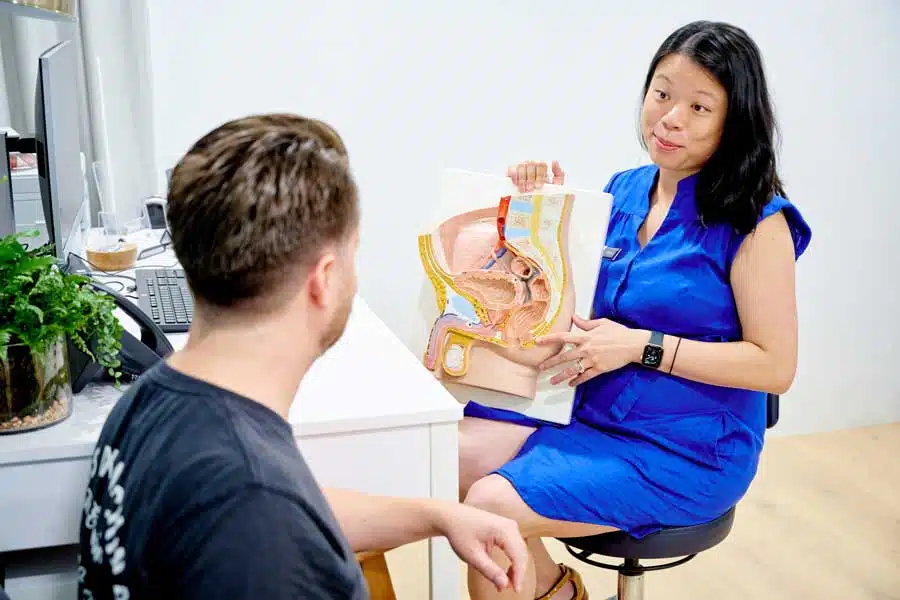Have you recently undergone surgery or treatment for breast cancer or gynaecological cancer? Do you maybe know a woman who has?
Getting diagnosed with breast cancer, ovarian cancer or any other type of gynaecological cancer is distressing in itself. It can become even more so when dealing with the pain and symptoms that come when recovering from cancer care. Some cancer survivors will have to learn to deal with all kinds of new symptoms and related conditions as a result of treatment, as they move forward on the path to a healthier life.
For many cancer patients, there is a wealth of information and support that comes in during cancer treatment. However, life post-treatment can sometimes show a lack of support, leaving cancer patients with unanswered questions about post-treatment care.
No matter what stage you are at in your cancer treatment, we want you to be able to go into your different post-cancer treatment options with a better picture of what recovery will look like. This can help you approach post-treatment pain management easier, and better deal with symptoms.
It’s also a good idea to get an understanding of other issues that can develop post-treatment, such as therapy needs or even financial support as you enter your recovery stage.
Let’s look at what you should keep in mind as you enter cancer treatment recovery.
Addressing Emotional Concerns
Cancer survivors know just how distressing cancer can be. Cancer diagnosis and cancer treatment across all cancer types can cause a lot of emotional distress, both during treatment and afterwards.
Whether you’re recovering from radiation, chemotherapy, or a cancer-related surgery, it’s common to feel distressed post-treatment. For many patients, the anxiety of cancer recurrence can be damaging. Some treatment options, like radiation treatment or surgery, can impact a patient’s body leading to low self-esteem. Plus, the sudden onset of conditions that result from different kinds of cancer treatment, or the continuation of symptoms following the end of treatment, can feel unfair.
It’s not just the cancer survivor who may feel emotional distress post-treatment. The process of watching a person deal with a cancer diagnosis and treatment can greatly impact loved ones too. The process of treating cancer is an emotional one, for all parties involved. It is important to address the emotional impact cancer has on family and friends, alongside the treatment of the person with cancer themselves.
The first step is talking about it. It’s important to recognise these feelings after the end of your cancer treatment plan. Acknowledging these feelings and knowing they are valid can help you begin to work through them. It is not uncommon for those ending cancer treatment to seek therapeutic support to work through these issues as a part of their recovery. Consider making this a key part of your post-cancer care.
Post-Treatment Side Effects
Even when treatment ends, it doesn’t mean your body will completely rid itself of the side effects. It is common for those who undergo hormone therapy, radiation therapy, or other approaches to targeted therapy treatment to feel side effects for weeks or months after completion.
The treatment options for endometrial cancer and breast cancer treatment may have cancer patients dealing with symptoms like fatigue, pain, trouble with sleep, lymphedema, numbness, trouble thinking, and much more.
It’s important to keep your medical team in the know about these issues. There is often a treatment option available that can help you alleviate these symptoms.
Treating Related Conditions
It is also common for a breast cancer patient or a gynaecological cancer patient to develop a related condition as a result of cancer treatment. Common conditions include:
For Breast Cancer Survivors: Axillary Web Syndrome
This is a condition where a breast cancer patient, post-treatment, will feel thick cord-like structures under the surface of the skin in their armpit and/or down the length of the inner arm all the way to the palm. This occurs at the site of scarring and can make it difficult for patients to fully lift their arms, limiting arm function.
Common symptoms include:
- Rope or cord-like areas in the underarm
- Pain in the arm/armpit/shoulder
- Feelings of tightness/stiffness in the arm/armpit/shoulder
- Limited motion in the arm
This condition can develop as a result of a biopsy or lymph nodes dissection treatment for breast cancer.
For Gynaecological Cancer Survivors: Vaginal Stenosis
This condition refers to a shortening and narrowing of the vagina, as well as increased dryness and less flexibility. It often leads to discomfort during any kind of pelvic exam, and pain during sexual intercourse.
Common symptoms include:
- Vaginal pain
- Dry vaginal lining
- Shortening and narrowing of the vaginal canal
- Vaginal muscle loss
- Thinning of the vaginal lining
- Loss of elasticity and scarring in the vagina
This can be a side effect of radiotherapy treatment for pelvic cancer conditions.
For more information on both of these conditions, click here.
What Are My Post-Cancer Treatment Options for These Conditions?
At Sydney Pelvic Clinic, we believe you shouldn’t have to live with long-term discomfort after cancer treatment. We are fully prepared to help you navigate post-treatment care and to help treat related symptoms and conditions like the ones above.
The physiotherapists at our clinic can help you access a number of different treatment options, and provide you with the information you need to manage post-cancer treatment. From educating you about pain management to physiotherapy exercises for physical limitations, we have plenty of options for you to explore.
Additional Resources
If you’re looking for more information about treatment after cancer, there are plenty of resources! In addition to reaching out to clinics like Sydney Pelvic Clinic, we suggest reading additional resources that paint a bigger picture of recovery.
Cancer Council is an organisation that supports cancer patients and cancer survivors in Australia with tons of resources. They have a post-cancer treatment guidebook that has some great information. Click here to learn more.

